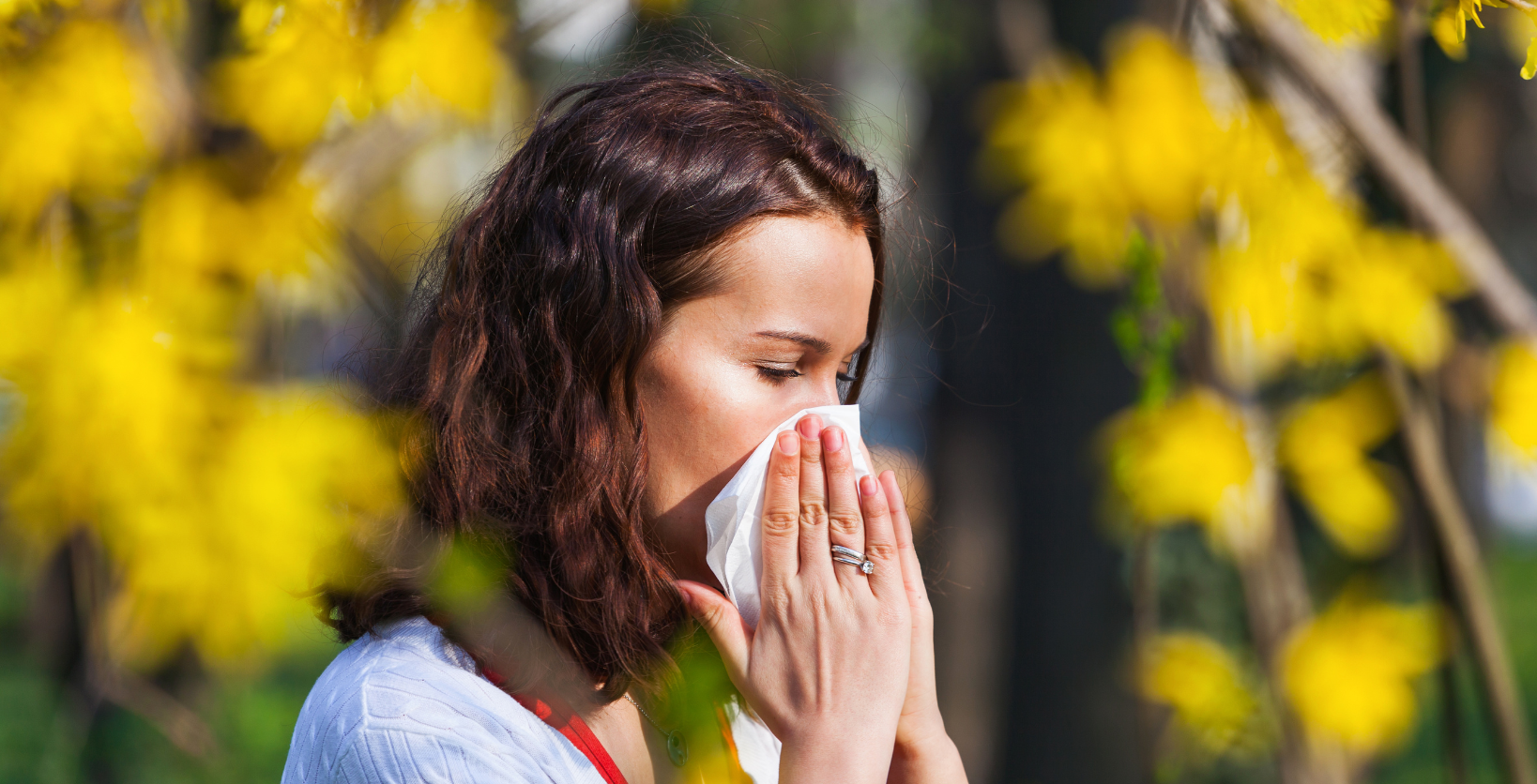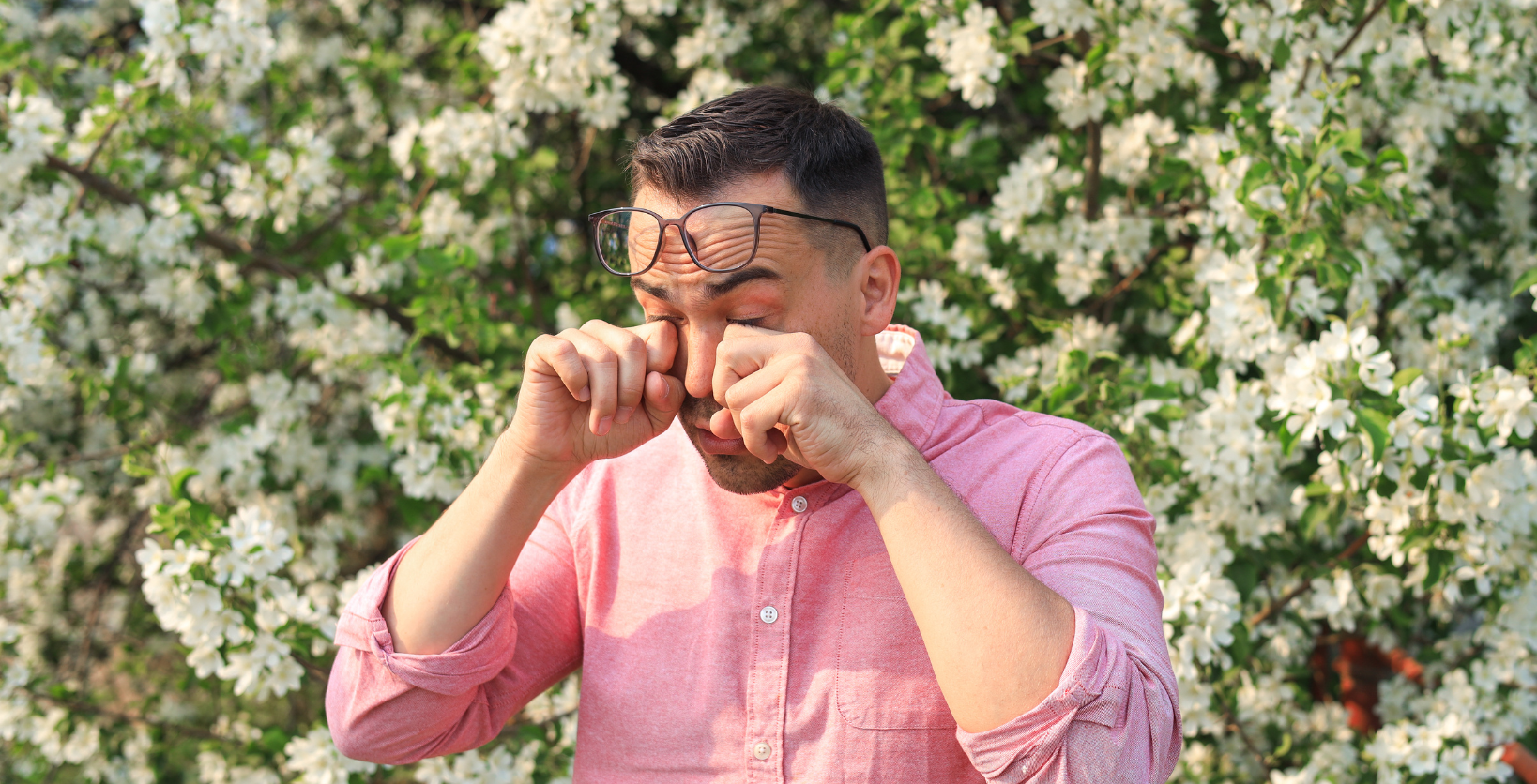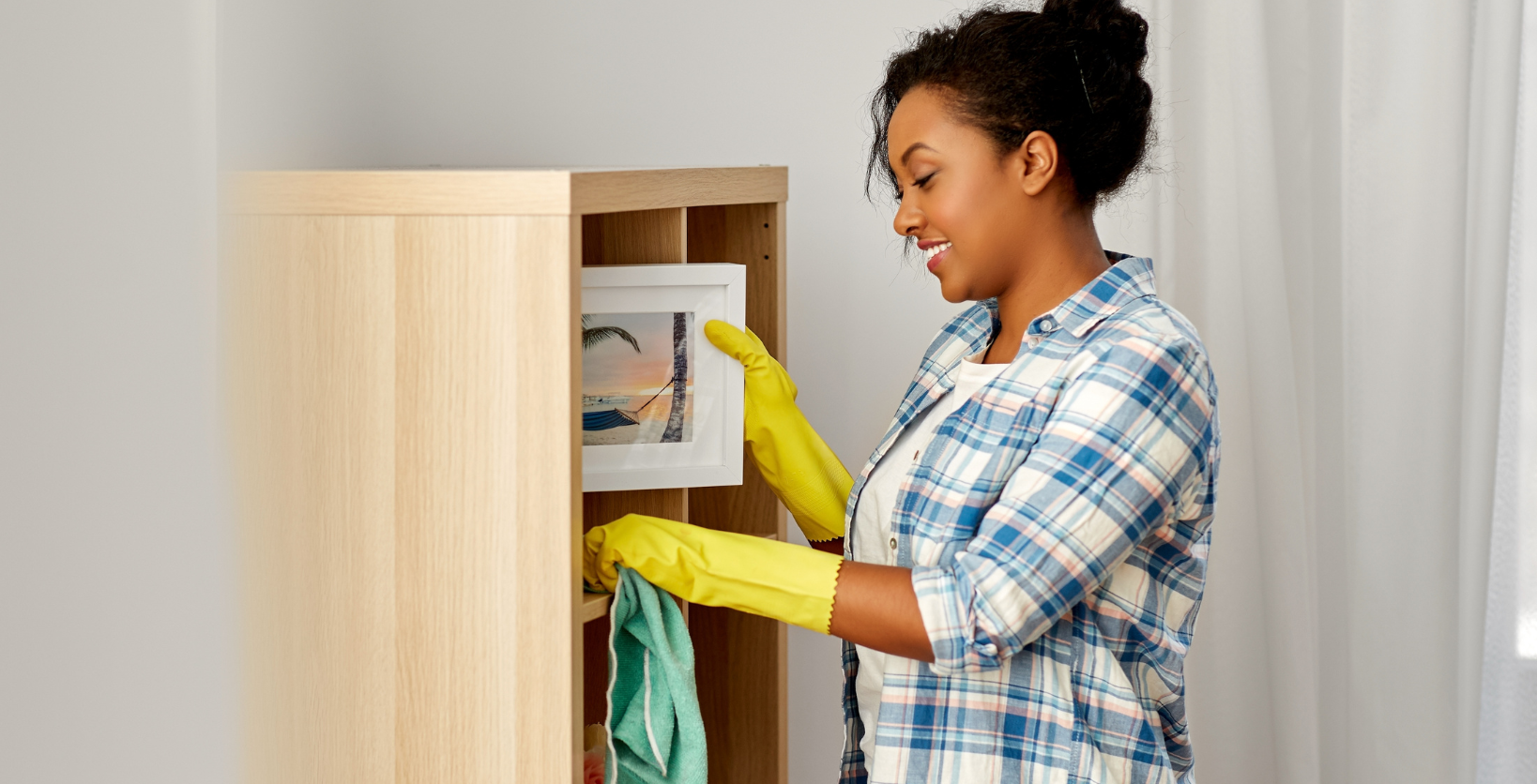- What Are Seasonal Allergies, and What Causes Them?
- When is Allergy Season?
- Seasonal Allergy Symptoms
- 8 Tips to Manage Seasonal Allergies
Spring allergies can be frustrating and limiting for millions of Americans. You’re not alone if you sneeze, sniff, and rub your eyes during this time of year. Over 50 million people in the United States suffer from allergies annually, and symptoms often interfere with daily activities and plans.
At WeCare Pharmacy, we understand the struggle of seasonal allergies and recognize that what works for one person may not work for another. This highlights the importance of education on prevention and treatment options tailored to your needs. Our expert team is dedicated to providing personalized guidance and solutions to help you breathe easier and enjoy the spring season to the fullest.

What are Seasonal Allergies, and What Causes Them?
Seasonal allergies, also known as allergic rhinitis or hay fever, occur when your immune system responds to harmless substances like pollen, dust mites, animal dander, molds, and specific foods.
Your immune system mistakenly identifies these substances as threats, producing allergic antibodies and triggering histamine release. This chemical induces the symptoms commonly associated with seasonal allergies, including a runny nose, watery eyes, sneezing, and skin irritations.
While pollen ranks among the most prevalent triggers for seasonal allergies, other culprits include dust mites, molds, insect bites, and animal dander. Additionally, smoke from campfires and fireplaces can provoke allergic reactions in susceptible individuals.
When is Allergy Season?
The peak allergy season usually falls between spring and summer, which coincides with the pollination of various plants during springtime. Pollen from trees like horse chestnut, cedar, willow, alder, and birch frequently causes spring allergies.
However, it’s important to remember that allergies are not limited to spring. They can occur all year, depending on the specific allergens individuals are sensitive to.
Although outdoor allergens are less common during the fall and winter, indoor allergens such as dust mites, animal dander, and mold can still trigger allergic reactions.

Seasonal Allergy Symptoms
Seasonal allergies can cause various symptoms in different body parts, such as the nose, eyes, throat, ears, and mouth. Common symptoms include continuous sneezing or itching, watery eyes, a congested nose, nasal discharge, and ear congestion.
In addition to these symptoms, some people may experience less typical symptoms like headaches, wheezing, coughing, and shortness of breath. The severity of allergy symptoms can differ from person to person depending on their immune system response and their level of exposure to allergens.
In rare cases, an allergic reaction to certain foods or insect stings can lead to an immediate and severe anaphylaxis reaction. Anaphylaxis affects the entire body and can lead to a sudden drop in blood pressure, swelling of the throat, and difficulty breathing, which can be life-threatening. If you experience symptoms of anaphylaxis, it is important to seek immediate medical help.

How to Manage Seasonal Allergies
Managing seasonal allergies involves a combination of avoidance strategies, lifestyle modifications, and medications. Here are some effective tips to help you find relief:
1. Avoid Allergy Triggers
Minimizing exposure to dust and pollen as much as possible can effectively decrease the frequency of allergic reactions. Opting to stay indoors on windy days and wearing a mask outdoors can help prevent contact with pollen. Furthermore, keeping windows closed at home and in your car can reduce exposure to allergens.
If you spend considerable time outdoors during allergy season, it’s advisable to shower and change clothes immediately upon returning home to remove any lingering pollen particles.
2. Try Nasal Irrigation Techniques
Methods like rinsing the sinuses with a neti pot, sprays, nebulizers, squirt bottles, or pumps can relieve allergies. However, use these devices correctly and follow cleaning instructions to avoid the risk of infection. Always read and follow the directions before getting started.
If you have any questions about using these devices, please ask one of our pharmacists for guidance and assistance.
3. Manage Your Stress
Stress can exacerbate seasonal allergies for some individuals. Stress-reducing techniques such as meditation, deep breathing, and relaxation therapy may help alleviate allergy symptoms.
Combining these stress-relief methods with the other allergy management strategies mentioned in this post is recommended for optimal results.
4. Improve Your Air Quality at Home
An uncomplicated yet efficient treatment option involves acquiring a vaporizer, humidifier, or air filter for your bedroom. These devices purify and humidify the air in your home, facilitating easier breathing and alleviating irritations in your throat and nose.
5. Oral Medications
Oral antihistamines and decongestants are available to help reduce allergy symptoms. These medications can be highly effective when used as a short-term treatment approach. Speak with a pharmacist for over-the-counter and prescription medication recommendations.

6. Keep Your Home Dust-Free
Maintaining a clean home can significantly help manage your allergies. Regular deep cleaning ensures your living space is free from common allergens like pet dander, dust, and mold, making breathing easier and potentially reducing the severity of your symptoms.
Here are some tips to keep your home clean and reduce allergens:
- Dust, vacuum, and mop 1 to 2 times per week to reduce allergens
- Wash your bed sheets every week
- Wipe down and disinfect common areas once a week
- Brush and de-shed pets during seasonal cycles of hair growth
- Clean pet beds and blankets regularly
7. Strengthen Your Immunity with IV Therapy
IV nutrient therapy is an effective method for managing seasonal allergies. By delivering essential nutrients such as zinc and lysine directly into the bloodstream, this treatment helps to cleanse the body of allergens, reduce oxidative stress, and enhance your immune system. It also helps to decrease histamine responses, providing quick and efficient relief from allergy symptoms.
Talk to your doctor about the Emergency/Immunity IV therapy kit with zinc, lysine, and Myers’ Plus boost.
8. Monitor Pollen Counts
Keep track of daily pollen forecasts and levels using local weather reports or allergy tracking websites. By knowing when pollen counts are expected to be high, you can better plan your outdoor activities to avoid peak times. Planning outdoor activities for times when pollen levels are lower, such as after
rain, can significantly help in minimizing your exposure. Additionally, using air purifiers with HEPA filters at home and in the workplace can help remove pollen from indoor air, providing relief from allergy symptoms even during high pollen days.
Should You Talk to a Doctor About Seasonal Allergies?
Are seasonal allergies stopping you from living life to the fullest? Don’t worry; with the right combination of lifestyle changes and personalized allergy treatments, you can take control of your allergy symptoms and breathe easier. Talk to your doctor about allergy testing to see what allergies you are dealing with. WeCare Pharmacy offers personalized allergy treatments as well as IV therapy for immunity and wellness. Have questions about different allergy products? Call our pharmacy at 540-422-2968 or contact us online.

